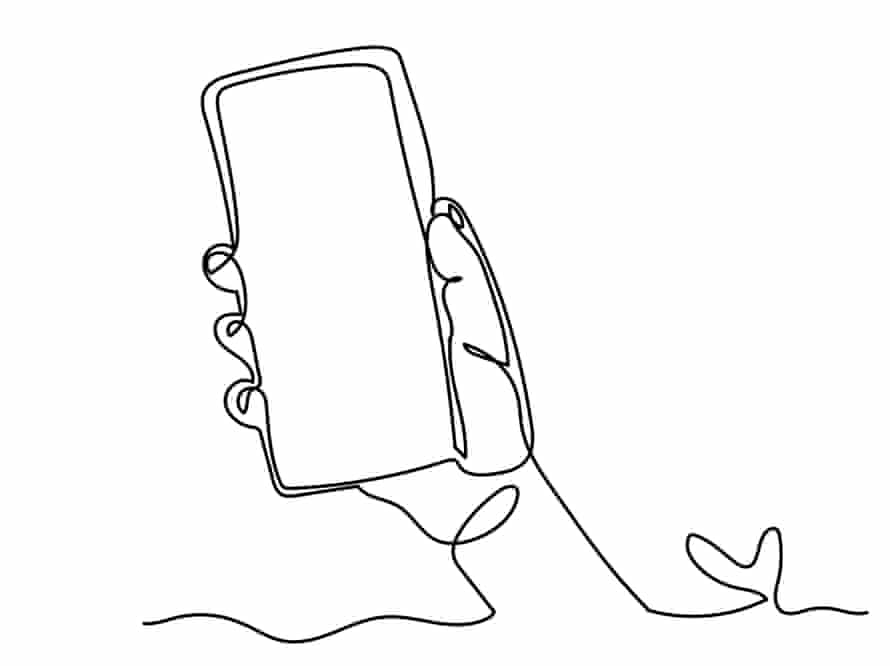Ever since former Sydney schoolgirl Chanel Contos petitioned for earlier and better consent education for school children following thousands of schoolgirl testimonies about rape, parents have been wondering how to talk with their children about sexual consent.
It’s been an intense few weeks focussed on rape culture since then, and parents are asking: at what age should this conversation happen? How should it be introduced? How do you actually talk about it?
Leesa Waters, deputy CEO at the National Association for Prevention of Child Abuse and Neglect (Napcan), says: “Schools can’t do this alone. Parents can’t do this alone. We all have to say we’re committed to this because we want change, and we want to prevent it happening to another generation.”
Waters, like all educators and researchers spoken to by Guardian Australia, says it’s not about one sex talk but about setting up a family culture of respect, teaching children about body boundaries, and having open and factual conversations about sex: “It’s about modelling consent and checking in with children about what they’re feeling and allowing children to have a voice from an early age and respecting that.”
She says that means stopping tickling your child if they say no, not making them kiss Grandma or Grandpa, and not forcing them to do things they are scared of, from riding a big water slide to sitting on Santa’s knee: “You can move past any Santa stand and hear parents asking their kids to just stay there for the photo. It’s asking their kids to override their feelings and their gut intuition about safety … it’s overriding their ability to express consent from a young age, and to trust their instincts.”
University of Western Sydney professor Kerry Robinson, an expert in gender and sexuality, says it’s important to establish the home as a safe place to talk about any topic: “If you have set it up early with your child that when they talk about certain things you give open, simple, honest answers, then you set a precedent that you can build on.”

Robinson suggests parents think ahead of time about how they might answer questions about sex, sexuality or body awareness, and says it’s OK to take time to ponder unexpected questions by saying: “‘That’s a really good question. I don’t have the best answer to that right now. I’m going to go and think about it and come back to you’. That allows another conversation when the parent feels more able and more relaxed to answer the question. They can think about it and do some research.”
Giving misinformation – such as babies are brought by storks – or fobbing children off will mean children learn this topic is off-limits. Robinson warns: “Don’t say, ‘Wait for another five years’. Straight away you’re setting a pattern of not answering and putting it off. Kids learn really quickly that this is a taboo subject. They will talk to their friends about it: they won’t talk to their parents and other adults about it because it’s taboo.”
R4Respect is a Brisbane-based youth mentoring program that works with schools and community groups to teach teens about respectful relationships. Program coordinator Rachael Pascua warns if you don’t have these conversations at home your children will learn elsewhere: “We know that most kids learn about sex through pornography and that can be extremely harmful because in pornography there’s so much normalisation of violence against women. So when young boys are learning that normal or appropriate sex is actually degrading, abusive sex, that’s a problem.”
Recognising agency from a young age
Robinson says early lessons about consent don’t have to have anything to do with sex: “You start with simple conversations that engage children about thinking about relationships and the way that people treat them and the way that people treat others.”
Books and television shows can provide great learning moments, where you can ask your child how they think characters feel about what’s happening. Robinson says talking to your child about their day can open discussions: “If they tell you, ‘such and such wouldn’t share the other day,’ ask them, ‘What do you think about sharing?’”
Waters says children can learn about mutual consent through play: “Good friends play games that both friends want to play.” If your child says, “If you don’t play with me, I won’t be your friend”, Waters suggests parents model: “It looks like they don’t want to play that right now. Why don’t you talk to them about something you both want to play?” and help their child respond with: “That’s OK. Tell me if you change your mind.”
Waters says children need to learn they have a choice in how they react, so when they’re older they don’t resort to blaming alcohol or someone else’s behaviour for their actions: “You need to tell children in all sorts of situations, ‘You have a choice about that. How you respond to that is your choice’. It’s about recognising agency from a young age and having that scaffolded throughout their childhood. Then those messages [about sexual consent] are going to be stronger and more easily reinforced.”
Waters suggests it’s important to teach children to seek consent: “Say to them, ‘Ask Nanna if she wants a cuddle and a kiss.’ That’s flipping it. We often teach kids you have a right to say no, but we don’t often teach them about seeking consent from other people as well.”
Author Jayneen Saunders has written a suite of children’s picture books and free teaching resources around consent, including Let’s Talk About Body Boundaries, Consent and Respect, and says parents should teach children from an early age the concept of a body bubble: “It’s an invisible space but it’s there. You need to say, ‘Do you want to play? Can I hold your hand?’… The modelling can be done before children even speak. They see that Mum and Dad offer each other consent as well. It’s powerful because children can’t do what they can’t see.”
Saunders says consent should be modelled by the entire community, including sports coaches and health professionals: “The doctor should ask your child, ‘I just need to check your tummy. Is that OK with you?’ A dentist should say, ‘I’m just going to look inside your mouth. Is that OK?’ We teach kids the mouth is a private part and we need to respect that.”
Social media and photos
Waters says as soon as children have access to a mobile phone it’s time to workshop what kinds of information they would be happy for their friends to share and teach them to ask for consent: “It doesn’t have to be a sexualised image. It could simply be an embarrassing image of your friend. It could be just that they’re in a school uniform and they don’t want their school or their sporting club identified in case someone wants to pick a fight. It might be something that for cultural or religious reasons it’s not appropriate to be sharing around: it could be a photo of someone in a bikini. It could be an address for a house party.”
Waters says parents should be mindful of their own social media habits: “What are parents sharing on their own social media platforms that their kids might not have given consent for?”

Fostering a safe, judgment free environment
Keeping communication channels open as your children enter adolescence means conversations can move towards sexual consent.
Melissa Kang, clinical associate professor at the University of Sydney, and a practising medical doctor for marginalised young people, says while most teenagers don’t have intercourse until they’re 16 or 17, “they do engage in other sexual behaviours, such as handholding, kissing and then light sexual touch, often from as young as late primary school.”
After 23 years as the contributing expert to teen advice column Dolly Doctor, Kang says: “Consent is one of the most pressing and urgent issues facing young people. Young women aged 15 to 19 are the group most likely to be victims of sexual assault while young men in the same age group the most likely to be perpetrators. It’s compelling and horrifying.” Kang has worked with ABC presenter Yumi Stynes to write Welcome to Consent, a book for tweens up, which will hit bookshops in June.
Kang says parents spend so much time talking to their children about unwanted touch that it can be hard to segue into conversations about consensual sex: “Kids haven’t done this before so they’re not sure either. But perhaps they would like to. Talking about a third person or the hypothetical can be a very practical and useful way to start those conversations.”
Pascua says for many teens consent means a school permission slip, so it’s important to start with what the term means: “The starting point is being crystal clear that consent is permission to have sex and that you cannot have sex without that person’s permission, otherwise that sex is rape or sexual assault.”
The consent model has moved from No Means No to a pure affirmation model, where Yes Means Yes and both partners need to consciously and voluntarily agree to participate in any type of sexual act, whether that’s kissing, hugging, sexting, exchanging photos or having sex.
Pascua says: “It should be an enthusiastic agreement – if it’s not a clear yes, it’s a no. There’s no grey area about it’s being maybe. Or I might. That means no. And it’s not just a once off … for consent you have a responsibility to check in with the other person to make sure are they OK. Are they comfortable? Do they want to keep going? Do they want to stop?”
Given that studies show many teens find information about sex online, parents might find it less awkward to start a conversation with their teen by watching the YouTube tea analogy consent video, the consent post by teen vlogger Laci Green or the NSW government’s #makenodoubt consent video.

Pascua says, “What young people really, really need is that they have a safe, judgment-free environment, a safe space to talk about sex and relationships, to talk about all the what-if scenarios.”
She says that means reviewing family attitudes and ingrained biases about rape myths and gender stereotypes: “The greatest way to segue into a really good conversation about consent is to take away the stigma around sex itself and to take away the shaming … It could be things like commenting on the length of your daughter’s clothes or telling her she’s being sexually suggestive through her clothing or actions or behaviour. We know that sometimes parents unfortunately hold those outdated beliefs and, whether or not they’re aware of it, they reinforce victim blaming.”
Robinson says the burden of sex education seems to fall overwhelmingly on mothers, and it’s time for fathers to step up: “A lot of fathers will say, ‘I’ll leave it to the mother, that’s your area.’ But fathers know a lot more about how it feels to be a young boy than the mother.” Fathers can model how to break out of the tough man stereotype and can call out gendered stereotypes in the community.
Pascua says: “That’s as easy as refraining from derogatory language when describing a woman or calling out an uncle or a brother who says things like, ‘Isn’t her skirt a bit short?’… Being an active bystander and not just letting things slide because ‘It’s just a joke’ or ‘He’s just being a larrikin’. What we’re doing here is normalising rape culture. The joke is where it starts and rape is where it ends.”
The important thing is to just start the conversation. Pascua says: “It’s that first step towards opening the door to this great conversation that needs to happen in this country.”
If you don’t feel prepared for the conversation, Waters suggests talking about it with friends and family, reading as much as you can on the subject and reaching out to organisations such as NAPCAN or R4Respect to see if they offer parent classes in your area: “Sometimes it takes time to learn to use the language. Practise it. It’s a bit like doing a first aid course. We learn how to do CPR so when the time comes we can use that information.”
If parents become empowered about the information, children will in turn become empowered. Says Saunders: “If we have empowered children at a young age, if they understand what consent and respect is at a young age they’ll understand it as tweens, as teens, and as adults and they’ll feel much more empowered to speak up and have a voice, to say these are my rights.”
10 tips for teaching consent
-
Talk early and often, building on the conversation and developing the trust of talking together.
-
Don’t wait for children to ask questions. They pick up taboos early.
-
Be prepared for conversations – find appropriate resources to build confidence.
-
Fathers need to be part of the conversation, especially with boys.
-
Children are able to understand concepts if discussed in age-appropriate ways, eg respect and consent around touching bodies, which is generally addressed in child protection classes.
-
Provide honest, open, simple answers. Children know when they have been duped.
-
If you don’t know how best to answer the question, come back to it. Take the time to think, read and then talk. Say, “That’s a good question. I’m not sure how best to answer you at this point. I think about it and get back to you.”
-
Good communication is two ways, not a lecture.
-
Children also need good resources that are age appropriate.
-
This is lifelong learning, not a one-off talk. The responsibility lies with families, schools and communities to work together.
Supplied by Kerry Robinson, adapted from Talk soon. Talk often: A guide for parents talking to their kids about sex (published 2011, updated 2019).
-
If you or someone you know is impacted by sexual assault, family or domestic violence, call 1800RESPECT on 1800 737 732 or visit www.1800RESPECT.org.au. In an emergency, call 000. In the UK, Samaritans can be contacted on 116 123 and the domestic abuse helpline is 0808 2000 247. In the US, the suicide prevention lifeline is 1-800-273-8255 and the domestic violence hotline is 1-800-799-SAFE (7233). Other international helplines can be found via www.befrienders.org
March 21, 2021 at 02:02AM
https://ift.tt/2ORnF9m
Teaching consent to children: 'The joke is where it starts and rape is where it ends' - The Guardian
https://ift.tt/2BsGM2G
Joke
No comments:
Post a Comment